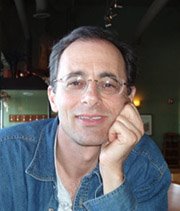Here are some of the things I will be doing at this year's CCCC:
Wednesday, March 11, 9 a.m. to 10:30 a.m.
RN.1 Research Network Forum
Plenary Talk: "Got Multilingualism? Why and How of Integrating a Multilingual Perspective into Writing Research"
Wednesday, March 11, 9 a.m. to 5 p.m.
Executive Committee Meeting
Thursday, March 12, 7 a.m. to 8:15 a.m.
Newcomer's Coffee
Thursday, March 12, 10:30 a.m. to 11:45 a.m.
A.16 Transnational English(es) and U.S. Composition: From Global to Glocal
Respondent
Thursday, March 12, 6:30 p.m. to 7:30 p.m.
TSIG.06 Second-Language Writing SIG: Discussing the Revised CCCC
Statement on Second-Language Writing and Writers
Discussant
Friday, March 13, 2 p.m. to 3:15 p.m.
J.05 Racism in Assessment
Session Chair
Friday, March 13, 3:30 p.m. to 4:45 p.m.
FS.K Featured Session: Voice in Written Discourse: Implications for Multilingual Writers
"A Critical Theory of Voice for the Multilingual Composition Classroom"
Friday, March 13, 6:30 p.m. to 7:30 p.m.
FSIG.24 Transnational Composition
Presenter
Saturday, March 14, 9:30 a.m. to Noon
Committee on Second Language Writing Open Meeting
Union Square 9, Hilton San Francisco
====
Here is a list of L2 writing-related sessions at CCCC 2009 in San Francisco (with thanks to Gladys Vega Scott):
Wednesday Workshops
MW.2 Keeping Multilingual Writers in Mind: How Universal Design Can Lead to Inclusive Pedagogies and Practices (Part I)
Wednesday, March 11, 9:00 a.m. – 12:30 p.m. Imperial Ballroom B, Ballroom Level
Chairs: Christina Ortmeier-Hooper, University of New Hampshire & Kathryn Nielsen-Dube, Merrimack College
This workshop provides participants with an overview of issues related to multilingual writers in higher education and explores ways to serve both L1 and L2 students better in writing classes, writing centers, and in WAC/WID programs.
AW.2 Keeping Multilingual Writers in Mind: How Universal Design Can Lead to Inclusive Pedagogies and Practices (Part 2)
Wednesday, March 11, 1:30 a.m. – 5:00 p.m. Imperial Ballroom B, Ballroom Level
Chairs: Michelle Cox, Bridgewater State College & Steve Simpson, University of New Hampshire
This workshop builds on themes presented in the morning workshop, allowing participants to further explore inclusive writing pedagogy designed with L2 students in mind.
Thursday Sessions
A.01 Un/Documented Literacies:Rewriting Cultural Citizenships in the United States
A.16 Transnational English(es) and U.S. Composition: From Global to Glocal
A.33 Four Voices from the Contact Zone of Composition Theory and Linguistic Minority
B.32 Waves of Transnational Composition, Ways of Doing Intercultural Rhetoric
C.11 Exploring Student, Teacher, and Tutor Limitations in the Linguistic Development of Multilingual Students in Mainstream Composition Classes
C.17 ESL Practices: Community, Voice and Identity
C.18 Surfing International Waves: Issues for Chinese Teachers and Writers
C.35 Teaching English Abroad: The Wave of the Future
D.03 Universal Design and Writing Programs: Constructing a Student-Centered Universe(ity)
D.27 ESL, Feedback, and Assessment
D.30 You’ve Been Served: Practice and Development of Service Learning for ESL and Writing-intensive Courses and for Teacher Development
E.03 Sovereignty and Dialect: Non-standard English Patterns in the Writing of Navajo Students
E.04 Multilingual Graduate Students and Composition Studies: Issues and Concerns for our Field
E.36 Grammar, Writing, and Communication
E.38 Strategies for Staying Afloat in the Multi-Lingual Classroom
TSIG.06 Second-Language Writing SIG: Discussing the Revised CCCC Statement on Second-Language Writing and Writers Thursday, March 12, 6:30-7:30 p.m.
Chairs: Kevin Eric De Pew, Old Dominion University and Jill Swavely, Temple University College of Education
The mission of the Second-Language Writing Special Interest Group (SIG) is to bring scholars and practitioners together to discuss the issues that all writing instructors, and, by extension, all writing programs face when working with second-language writers. This year we will present the revisions of the Statement and discuss the draft before it is proposed to the CCCC Executive Committee.
Friday Sessions
F.28 Writing on Different Wavelengths: Competing Perceptions of Teaching and the Academy
F.31 Cultural Expectations in Cross-cultural Classrooms: ESL and International Issues
F.39 Going Global by Going Local: Connecting Study Abroad and International Students with the Writing Support They Need
G Featured Session: Walking the Talk: Teacher Response and Best Practices
H.07 The Research Plan is Sinking—Locate the Lifevest!: Navigating Research Methodologies and Realities
H.13 Approaches to Teaching Writing to L2 Learners and ESL Students
H.25 Multicultural/Multilingual
K Featured Session: Voice in Written Discourse: Implications for Multilingual Writers
Saturday Sessions
L.01 Think-Tank for Newcomers Developing Papers and Sessions for CCCC–2010
L.23 Assessment of Student Writing
L.30 ELL Practice: Work, Pedagogy and Literacy
M Featured Session: Literacy in Higher Education in Mexico
M.14 Authorizing Multiculturalism at the Center: Tales of Trials and Triumphs
M.26 World Englishes: Possibilities/Limitations of Code Meshing
N.26 Writing in the Technical and Scientific Disciplines
O.07 Global Issues: Closing the Divide between Locals and Transnationals in Freshman Composition
Committee on Second Language Writing Open Meeting (p. 32)
Saturday, March 14, 9:30 a.m.–Noon - Union Square 9, Fourth Floor
Co-Chairs: Susan Miller-Cochran & Christina Ortmeier-Hooper
Each year, the Committee on Second Language Writing sponsors an open meeting to plan activities and sessions for the following year. If you’d like to get involved in second language writing workshops or the Special Interest Group on Second Language Writing, please come to this meeting. We will also share ideas for panel proposals.
This is not a complete listing of second language writing-related sessions:
for a complete list, please consult the convention program.
SLW.CCCC: Second Language Writing at CCCC Email List
In order to facilitate communication among CCCC members who are interested in second language writing, the Committee on Second Language Writing sponsors an email discussion list (hosted by North Carolina State University).
To join the list, send an email message to mj2@lists.ncsu.edu with the following in the body of the message (do not type anything in the subject line):
subscribe slw_cccc
If you have any questions about L2 Writing at CCCC, please feel free to email Susan Miller-Cochran or Christina M. Ortmeier-Hooper, Co-Chairs of the Committee on Second Language Writing:
Christina M. Ortmeier-Hooper
christina.ortmeier@unh.edu
Susan Miller-Cochran
susan_miller@ncsu.eduLabels: announcement, CCCC, composition, conference, L2 writing



